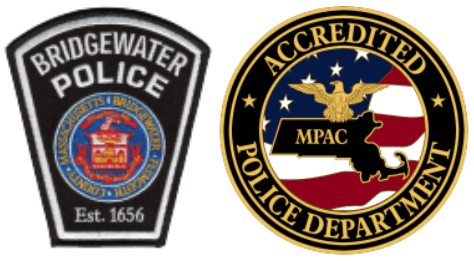High Risk Indicators
- Perpetrator threatens or fantasizes of homicide/ suicide
- Threatens to harm the victim’s children
- Jealousy
- Financial Controls
- Violence is increasing or becoming unpredictable
- No choice when it comes to having sex
- Strangulation or attempted strangulation
- Access or ownership of weapons
- Extreme violence to victim
- Victim believes the perpetrator will kill them
- Hostage taking or kidnapping
- Threat to kidnap
- Any type of substance abuse
- Violence to animals
- Stalking behaviors
If you recognize any of the above indicators or feel they are present in your relationship, you could be in danger.
Domestic Violence Officers
Officer Nicole Sheehan
Officer Adam McGrath
Confidential phone calls returned.
(508) 697-6118
Plymouth County District Attorney’s Office
For assistance with additional domestic violence resources in Plymouth County, 209A’s and court matters relating to current DV cases, please visit the Plymouth County District Attorney’s Office website.
Always remember: You have the right to feel safe in your relationship
Community Resources
Domestic Violence Program
24 hour crisis line: 1(800) 281-6498
Office: (508) 583-5200
This is a confidential, free service for battered women and their children.
Family Violence Advocacy Center
155 West Elm Street, Brockton
Office: (508) 584-2966
Office hours are Monday – Friday 8:30 a.m. – 4:30 p.m.
Shelter, Services, Advocacy, Outreach, Education
24 Hour Toll Free Crisis Hotline 1(888) 314-DOVE (3683)
This is a confidential, free service for battered women and their children.
209A Orders
An Abuse Prevention Order, called a “209A Order”(also known as a “protective order” or “restraining order”), is a civil court order intended to provide protection from physical or sexual harm caused by force or threat of harm from a family or household member. You can obtain an order against:
- A spouse or former spouse.
- A present or former household member.
- A relative by blood or a present or former relative by marriage.
- A roomate, regardless of gender or relationship
- A person with whom you have or had a substantial dating relationship.
- A Dorm. roomate, regardless of gender or relationship
- You may obtain an order for a minor child under the age of 18 if you are his/her parent or legal guardian
A 209A Order can be obtained in any District Court, Superior Court, or Probate and Family Court in Massachusetts. An emergency 209A Order can be obtained through any police department after court hours, on weekends and holidays. You do not need a lawyer to file for a 209A Order and there is no charge for filing.
A minor under 18 years old can obtain a 209A Order with some restrictions. Generally, a parent or guardian needs to be present, but the judge can decide to issue a 209A Order without a parent present if the minor appears to be in danger. In some cases, the Department of Social Services may offer assistance in gaining help for a minor. Many high schools and colleges also offer support groups for students in violent relationships. A parent may also obtain a protective order for his or her child.
In addition to the crime of violating a 209A Order, an abuser can be charged with a number of other crimes committed at or near the time of the violation, some of which may include:
- Assault (M.G.L. c. 265, Section 13A), which is an attempt or offer to do bodily injury by force or violence or attempt to batter.
- Assault and Battery (M.G.L. c. 265, Section 13A), which is a harmful or unpermitted touching of another, no matter how slight, without a legal right to do so.
- Assault and Battery by Means of a Dangerous Weapon (M.G.L. c. 265, Section 15), which is a battery with a dangerous weapon, such as a baseball bat, a shod foot, a knife or other object either inherently dangerous or used in away that may cause serious injury or death to another.
- Threats (M.G.L. c. 274, Section 4), which are verbal or written threats to do harm which a victim reasonably believes the abuser can commit.
- Trespassing (MG.L. c. 266, Section 120), which is entering or remaining in a house or on land in violation of a 209A Order.
- Malicious Destruction of Personal Property (M.G.L. c. 266, Section 127), which is the destruction of or injury to personal property, a house or building in a manner that is willful and malicious.
- Stalking (M.G.L. c. 265, Section 43), which is the willful, malicious and repeated following or harassing of an individual and the making of threats with the intent to place that person in imminent fear of death or serious bodily injury. The penalties are greater for a conviction of a stalking crime committed in violation of a 209A Order.
